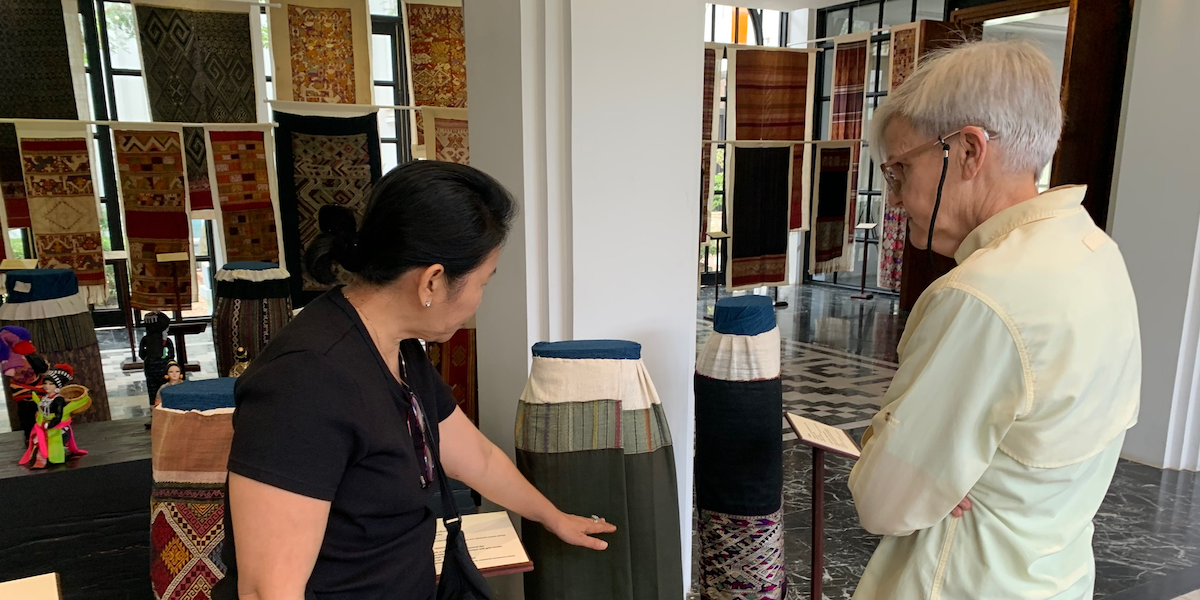Even in Retirement, Diplomats Maintain Global Friendships
We are trained to develop and cultivate relationships in the countries where we serve, so we can manage official ties.
By PATRICIA D. NORLAND | JANUARY 12, 2025

Getting to know people from different countries comes easily to Christopher Webster. As a child, he grew up around Hungarians who had fled their motherland after the 1948 communist takeover — his mother was one of them. His neuroscientist-father regularly interacted with foreign colleagues and worked on strengthening international scientific cooperation. Webster took his first overseas trip, to Europe, at age 10. In college, his roommates came from Hong Kong and Vietnam. “It just seemed natural,” he said, “to be with people from different backgrounds. It went along with my interest in international relations and understanding the world.”
So it was no surprise when Webster chose diplomacy as his profession and spent 35 years in the U.S. Foreign Service. The relationships he built at his foreign posts went beyond government officials and businesspeople to include local staff serving at the U.S. diplomatic missions, as well as locals who worked in his home.
Career diplomats like Webster, as well as me and my wife, Angela Dickey, have a unique way of life, and some of the people and places we encounter around the world stay with us long after we retire. We have maintained friendships lasting decades, which have enriched our lives in ways most Americans don’t have the opportunity to experience. Some of us are better at keeping in touch than others. In the Foreign Service, we are trained to develop and cultivate contacts and relationships in the countries where we serve, so we can navigate foreign societies, manage official ties and carry out our government’s policies.
Some of the friendships Webster forged during his time in the service endure today, a dozen years after he retired. There was Roopmattie, his housekeeper in Guyana in the late 1970s, and the guard, Mohanlall, who brought Webster into their homes and introduced him to indigenous Guyanese dishes, such as pepper pot, a meat stew, bora beans and cassava. They also took him to their families’ countryside homes, and Webster stayed with Mohanlall’s relatives on a solo trip to Guyana’s border with Suriname. Roopmattie and Mohanlall ended up getting married, and their friendship with Webster continued throughout his career. Mohanlall passed away in 2014, but Webster is still in touch with Roopmattie.
In Bangladesh, while serving as deputy chief of mission in the early 2000s, he met some of his closest friends. Returning to the capital Dhaka as a private citizen in 2023, he visited Rani, his former cook, and Solaman, a bearer — a South Asian term for someone working in the house and helping with representational events. Rani prepared Webster’s favorite dishes, including lamb and fish curries, and gave him a locally spun bedspread. Solaman and his family, who still live in the same home Webster visited during his tour in Dhaka, invited him into the cramped sitting room and offered papaya and mango slices, along with black tea. Solaman then gave Webster two button-down shirts made in Bangladesh.
During Webster’s return trip, a local embassy employee who used to work with him took him to the Shait-Gumbad, a well-known 15th-century mosque with onion-shaped minarets, three hours south of the capital. “The importance of developing friendships with people of different backgrounds never fades,” Webster said. “I’ve always appreciated friends who’ve lived in varied cultures and under differing circumstances. I enjoy these friendships. They have enriched my life.”
As the child of a diplomat, I remember the care my parents took not to lose touch with friends they had made abroad after we moved on to the next country, long before the invention of email, texting and free phone calls. Each post and culture offers its own contexts for building relationships — from formal meals, receptions and conferences to relaxed and music-infused discussions late into the night, often influenced by the news of the day.
After Angela and I retired, we decided to stay in the Washington, D.C., area, in part because many of the people we met abroad pass through, which gives us a chance to see them. We have traveled as well, visiting Laos and Vietnam in particular several times. In the aftermath of the Vietnam War, and especially since the United States reestablished diplomatic relations with Vietnam in the 1990s, it has been important for diplomats to build trust between the two countries, and in Southeast Asia more broadly.
On our recent visits to Ho Chi Minh City, we reunited with a local employee of the U.S. Consulate General, whom I first met in 2007. We enjoyed catching up with her over strong coffee and delicate pastries, and valued her thoughtful insights into the ways both Vietnam and its people have changed since I lived there. In Laos, an embassy staffer I first met in 2000 showed us the changes in the capital Vientiane by driving us around and taking us from a tea shop to a local market. Visits like these, she said, are a sign of trust.
This year, we are planning a trip to France to see my oldest friend, Florence. I’ve known her since I was in kindergarten. My family shared a house with hers when NATO’s headquarters was still in Paris in the early 1960s, and my father was posted there. As a diplomat’s child and a Foreign Service officer myself, I’m hard-wired to value such friendships.
Patricia D. Norland is a former Foreign Service officer and the author of “The Saigon Sisters: Privileged Women in the Resistance.”

